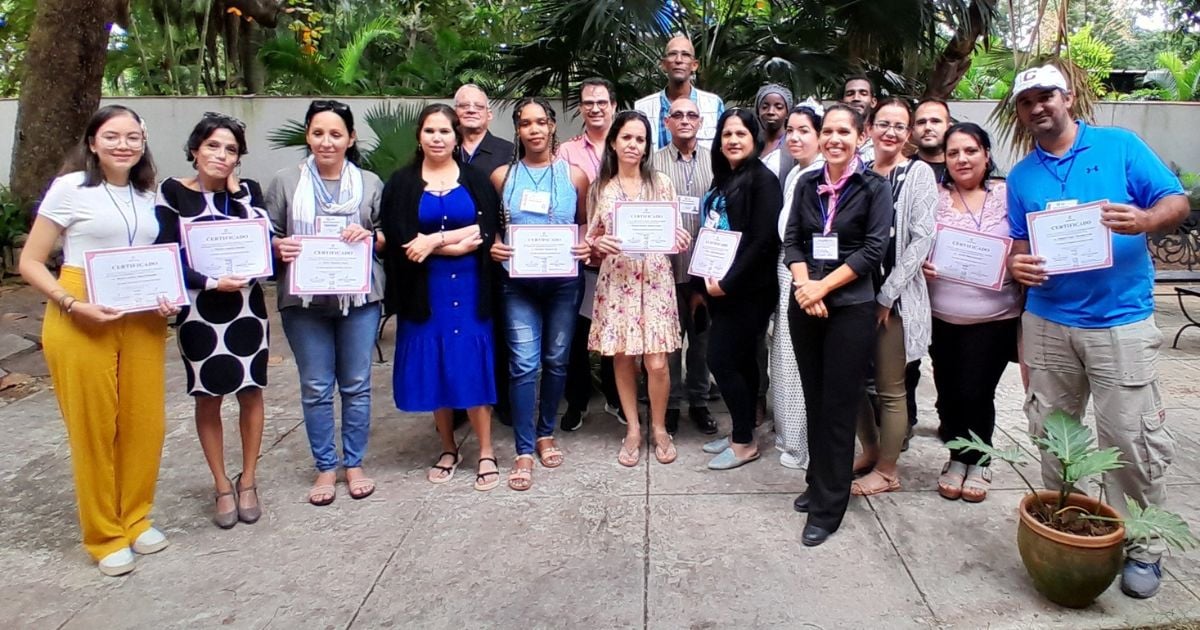
The Cuban regime has accredited the first group of social communication inspectors, subordinate to the Institute of Information and Social Communication (IICS), with the aim of "controlling and supervising," thereby tightening state control over information and raising concerns about an increase in censorship.
Jorge Legañoa, vice president of the IICS, shared images on his X profile of the newly graduated inspectors as they signed the Code of Ethics and received their credentials.
"The new social communication inspectors in Cuba signed the Code of Ethics and received the credentials that authorize them to exercise oversight and regulation in this area," the official stated.
In another post, Jorge Legañoa proclaimed triumphantly the completion of "the training of the first temporary social communication inspectors in Cuba," describing it as "another step towards fulfilling the functions of the organization," demonstrating clearly how the regime strengthens its information control machinery.
The IICS stated on the social media platform X that, with the signing of the Code of Ethics, inspectors are beginning "a new stage in the journey towards compliance with current regulations and the protection of citizens' rights," a statement that contrasts with growing concerns about the use of these figures to enhance censorship and limit freedom of expression in Cuba.
Law 162/2023 on Social Communication establishes the creation of the position of social communication inspectors, who are responsible for overseeing and monitoring compliance with regulations related to communication processes in Cuba.
These inspectors operate under the authority of the Institute of Information and Social Communication (IICS) with the primary objective of ensuring that the content and communication practices in organizational, community, and media spheres adhere to the principles established by the socialist state.
It is striking that the law stipulates that the duties of these inspectors encompass both physical and digital spaces, reinforcing state control over the information circulating in society.
According to Article 105 of the Law, inspectors are authorized to carry out control actions over the organs, agencies, and entities of the State, as well as over the economic and social actors involved in communication processes.
This includes ensuring that the media adhere to the approved editorial guidelines, that they are duly registered in the relevant national registers, and that their content complies with the provisions of the Constitution and current regulations.
Likewise, inspectors have the authority to impose administrative penalties for violations, such as the dissemination of “unauthorized” or “discriminatory” messages.
The oversight by these inspectors also extends to communication in cyberspace, where they must "respect ethics and legality," promoting "values consistent with socialist ideology" and "avoiding messages deemed subversive or contrary to constitutional order."
Filed under: